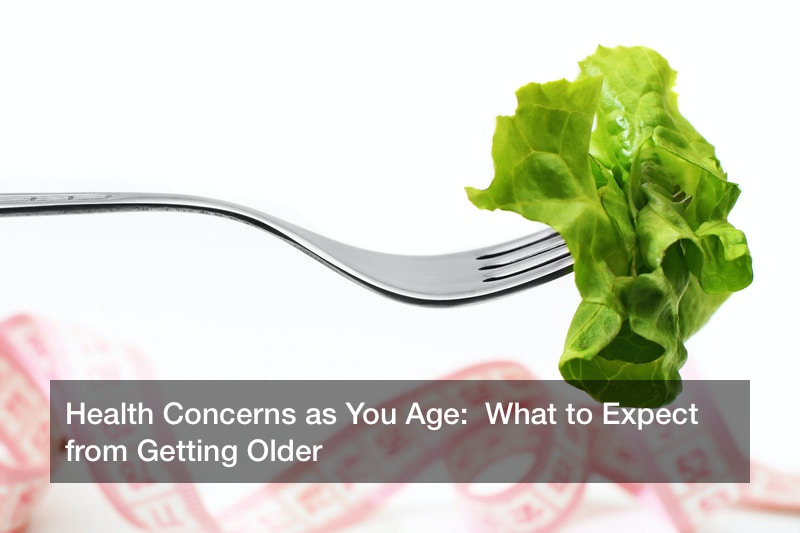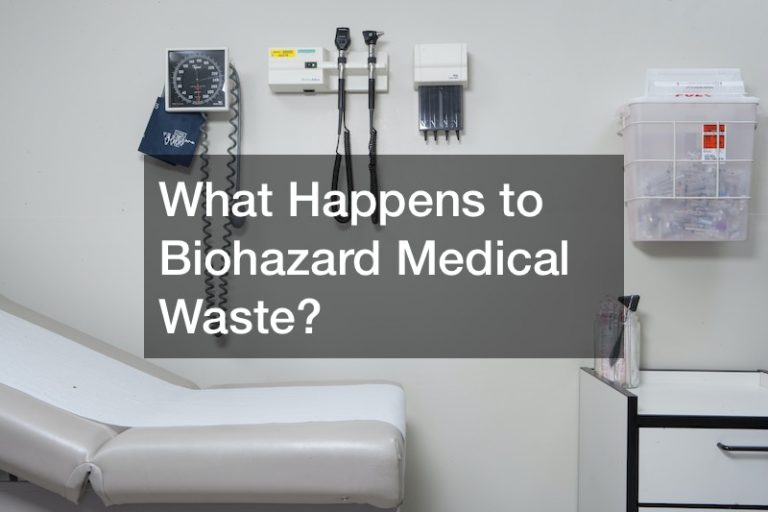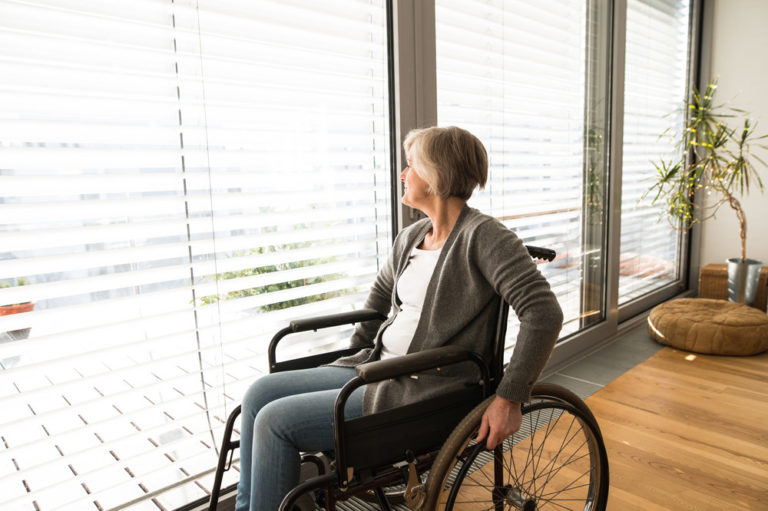

Are you or a loved one getting on in years, and wondering what elderly health concerns you should expect?
Entering into your twilight years comes with some unique challenges to your health. Getting an affordable insurance plan is a good first step to good health, but it won’t prevent aging. And getting older can seem very daunting — which is somewhat ironic, since it’s something we all do without trying. Watching in the mirror as your youth slips away with graying hair and wrinkling skin is bad enough. When you add elderly health concerns to the mix, growing old can quickly go from depressing to frightening.
Fortunately, with the right precautions, getting older doesn’t have to be sad or scary. There are many preventive measures that you and your family can take, which will help place yourself (or your loved one) on a road to healthy aging. But before you can do that, you’ve got to know what elderly health concerns you should expect. To help with that, this article features some of the most common health challenges people face as they age.
From eye problems to mental health, keep reading to learn more about the top elderly health concerns.
Chronic Health Conditions
One of the most common elderly health concerns is also one of the hardest to talk about: succumbing to a chronic disease or injury in old age. According to the National Council on Aging, most older adults require medical care for chronic disease, with 80% of them having at least one chronic disease and 77% having at least two. Additionally, heart disease, cancer, stroke, and diabetes together cause nearly two-thirds of all deaths every year.
If you or your loved one becomes a victim of one of these chronic health conditions, it’s important to have good health care agencies that can provide the care you need. But if you’re still enjoying relatively good health, the last thing you should do is assume it will always last. While you’re still healthy, you should prioritize preventive measures to avoid these chronic conditions. Maintaining a healthy, nutritious diet, sticking with a good exercise plan, and visiting your physician for a checkup once per year can help you prevent the onset of chronic disease. One important thing to guard against specifically is obesity, as it’s a significant problem among older adults and leads to poorer health (we’ll talk more about weight gain later).
Poor Oral Health
Above we mentioned a healthy diet as being instrumental in preventing the onset of chronic disease. But if you cope with problems such as tooth decay and cavities, maintaining a healthy diet can become difficult, as you choose foods based on what’s easiest to eat, not what’s best for your health. Not only that, but in many ways, the quality of your oral health determines the quality of your body’s health overall. So keeping your teeth in good condition and getting restorative dentistry treatments when needed is of foundational importance to the rest of your health.

Significant elderly health concerns related to oral wellness include dry mouth, gum disease, and mouth cancer. Conditions like these can be managed, and sometimes even prevented, with good dental care and regular visits to your dentist. If you (or your aging loved one) lost your dental insurance after retiring, you’ll want to apply for new insurance that you can afford as soon as possible. Some Medicare programs include coverage for dental care, so you should have options no matter what your budget is like.
Malnutrition
Following along in the subject of nutrition, the next item on our list is malnutrition. In adults older than 65, malnutrition often goes undiagnosed, and it can lead to a host of other elderly health concerns, starting with muscle weakness and diminished immune system effectiveness. Sometimes malnutrition is a result of other health issues, such as dementia, which can cause a senior to forget to eat; depression, which can make food seem unappealing or unappetizing; alcoholism; or dietary restrictions, which limit the range of foods one can have. Adding to this the reduced social contact and often limited income that can accompany aging, and you’ve got a significant problem.
While committing to a significant change in diet all at once can be overwhelming, it’s a good idea to make small, positive dietary changes over time. Do whatever you can to increase your (or your loved one’s) intake of fruits and vegetables, while simultaneously decreasing consumption of saturated fats and salt. If you or your loved one cannot afford food or has difficulty preparing meals, there are government benefits and food services available which can help with either problem.
Sensory Impairments
Sensory impairments, to both hearing and vision, are extremely common for older adults. Fortunately, the wide availability of affordable hearing aids and glasses means the most common sensory impairments are easily treatable.

Sadly for many people, having a sensory impairment means they’re restricted from participating in activities they used to enjoy, such as playing golf or music. But thanks to advancements in things like hearing aid technology, as well as convenient options like prescription sunglasses, elderly health concerns don’t have to be so restrictive.
Mental Health Conditions and Cognitive Decline
According to the World Health Organization, roughly 15% of adults over the age of 60 suffer from a mental disorder. Dementia and Alzheimer’s disease are perhaps the most often associated with aging, but they are far from the only age-related mental health issues.
Cognitive health deals with an individual’s ability to think, learn, and remember. The most common cognitive health issue faced by the elderly is dementia, which causes these cognitive functions to be lost. According to the National Institute on Aging, unhealthy lifestyles and preexisting diseases can increase your risk of developing dementia. These include substance abuse and smoking, and diseases like diabetes, hypertension, depression, and HIV. While some of these aren’t curable, they’re all treatable, and unhealthy lifestyle habits can be overcome with effort. By prioritizing your health and wellness now (or that of your elderly loved one), you stand to gain more years of clarity and freedom from cognitive health issues.
Conditions like Alzheimer’s aren’t the only elderly health concerns involving mental wellbeing. Depression is a significant problem for people of all ages, and it doesn’t necessarily grow less likely or significant with age. Although only one in 20 seniors experience depression (the lowest rate of any other age group), it becomes a problem anyway because many of them don’t get diagnosed. Older adults themselves, and even their doctors, can easily dismiss symptoms of depression as natural reactions to illness or life’s setbacks. So even though you’re statistically less likely to have depression as a senior than you are when you’re young, you should take care to get a proper diagnosis if you start to notice symptoms of depression.
You’re more likely to experience depression if you have long-term health conditions, such as heart disease or arthritis. Conditions like these place limits on your life, which can cause lingering feelings of sadness and dissatisfaction which can develop into full-blown depression. People who rely on home healthcare services are more likely to experience depression compared to other adults.
For many older adults, depression may come for them in the form of subsyndromal depression. This condition doesn’t cause all the symptoms of major depression, but it does cause you to feel less interest or pleasure in people and activities than usual. This may seem like no big deal, but remember that your experiences are what life is made of, and it’s not good to go through the last part of your life without taking full pleasure in your experiences with family and friends. If you experience signs or symptoms of any kind of depression, it’s something you need to take seriously.
Late-Onset Food Allergies
Anyone can be prone to allergic reactions and require allergy relief, but for older adults specifically, a significant health concern is late-onset food allergies.

Most people who worry about unexpected food allergies are young parents, as allergic reactions to certain foods that last a lifetime typically show up when children are very young. But because of your (or your loved one’s) aging immune system, you actually become at a higher risk of developing a surprise food allergy as you get older. This aging of the immune system is called immunosenescence, and it can result in new food allergy development.
It’s important that you occasionally seek screening and diagnoses for food allergies. Attempting to self-diagnose a food allergy isn’t the best idea, since it can lead to nutritional deficiency as a result of overly restricting food intake.
Weight Gain and Obesity
Obesity is practically an epidemic in the United States, and it’s just as much a problem for the elderly as it is for the young. Elderly health concerns come with a triple threat of excess weight gain: you lose muscle as you age, which makes it difficult to work out and maintain an exercise routine; you become consciously less attractive, which can make staying fit feel less rewarding; and as if that wasn’t enough, your body also starts to burn fewer calories in response to activity. With these three disadvantages piling up on each other, gaining too much weight as an older adult can quickly become a real problem.
And if you do give in and let that extra weight creep on, you’ll be setting yourself up for even bigger problems. Being overweight increases your chances of developing a number of health conditions, including heart disease, diabetes, high blood pressure, and stroke. Arthritis is often worsened by obesity. Not only that, but everyday movements like walking and getting up out of chairs becomes more challenging.
In the end, no matter how old you are, you still have lots of reasons to stay fit. Ask your doctor for advice about smart ways to keep the weight off.
Physical Injury
Every 11 seconds, an older adult is admitted into the emergency room for a fall. Not only that, but roughly 25% of all elderly people die after a broken hip resulting from a fall. While things like back pain resulting from a physical injury are often treatable, fatal accidents must be prevented to avoid serious elderly health concerns.
Older people are more susceptible to falls because aging causes their bones to shrink and their muscles to lose flexibility and strength. As a result, they’re more prone to losing their balance, which can cause anything from bruises to fractured bones. Two significant diseases that contribute to this kind of frailty are osteoporosis and osteoarthritis.

While the thought of falling and being injured can be frightening, it is not inevitable. In many cases, frailty resulting from old age can be postponed and even prevented altogether with healthy living and medical treatment. You can also significantly decrease your risk of falling by having rails installed in your house and on your property wherever you might slip and fall, such as next to staircases and even next to your mailbox. You can also decrease your chance of losing your balance by keeping a cane or long umbrella with you whenever you go out.
Substance Abuse
Substance abuse is more common among older adults than you might realize. According to the National Council on Aging, the number of elderly adults with substance abuse problems was expected to double, all the way to five million, by 2020. Despite this, many people don’t naturally associate the problem of substance abuse with the elderly, which makes it an often overlooked issue.
Another problem that can lead to substance abuse is that older adults are frequently prescribed multiple prescriptions, which are intended to be used over the long term. Substance abuse happens when someone suffering from a mental condition takes someone else’s medication, simply because they can’t afford to pay for their own.
Flu
When you think of health problems most often faced by the elderly, the typical winter flu probably isn’t the first thing that comes to mind. But it’s surprisingly significant for the elderly, which is why it comes in last on our list.
As mentioned briefly earlier, when you get older, your immune system simply isn’t as strong as it once was. As a result, while younger people typically fight off the seasonal flu after a couple of weeks at home, seniors are more likely to be hospitalized or even die because of flu-related problems. Old age increases your chances of experiencing flu complications, such as pneumonia, sepsis, and worsening of lung or heart disease.
Because of this, an annual flu shot is absolutely essential, especially to the elderly. If you’re older than 65, you should consider asking your doctor if they would recommend a high-dose version, which can offer more protection. As with most of the items on our list, prevention is the first and best way to approach health problems.
Elderly health concerns may often get more worrying with age, but they don’t have to. By knowing what to expect and entering life prepared, you can ensure a long, healthy life for yourself or your loved one.
Related Keywords: 1.1 describe changes that may come with ageing, 42 year old woman body, 46 year old female, 46 year old woman body changes, 48 year old woman health, 5 signs of aging, 50 body, 50 year old physique, 55 year old female body, 60 and 70, 60 is the new sexy, 60 year old legs, 60 year old men’s health, 67 year old male, 70 yr old woman, 70s person, 72 year old male, 75 year old male, 75 year old woman looks young, 8 ways to prevent dementia in old age, 90 year old man with alzheimer’s.







